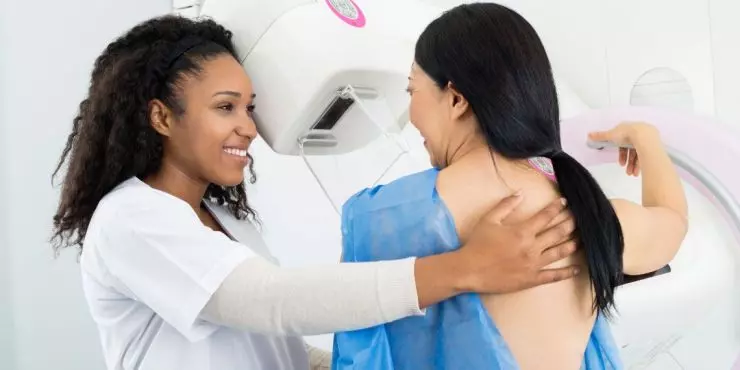
Every October, Breast Cancer Awareness Month serves as a powerful reminder of how critical early detection, education, and proactive care are when it comes to protecting women’s health. While most national campaigns focus on women 40 and over, it’s equally important for women in their 30s to understand their risk factors—and take action now.
At Northwest Family Clinics, with locations in Crystal, Plymouth, and Rogers, Minnesota, we believe in meeting women where they are. Whether you’re navigating motherhood, building a career, or both, your health deserves your attention too.
Why Early Awareness Matters

Breast cancer can affect women of any age. According to the CDC, about 9% of all new breast cancer cases in the U.S. are diagnosed in women under 45. While the overall risk increases with age, younger women often face more aggressive forms of breast cancer and may be diagnosed at a later stage due to lower screening rates.
That’s why education and vigilance are key.
Know the Risk Factors in Your 30s and 40s
While some risk factors can’t be changed, being aware of them can help you make empowered decisions:
- Family history of breast or ovarian cancer
- BRCA1 or BRCA2 gene mutations
- Personal history of certain non-cancerous breast conditions
- Radiation exposure to the chest (especially in childhood or early adulthood)
- Dense breast tissue
- Alcohol use
- Lack of physical activity
- Obesity, especially after menopause
If you have a family history of breast cancer or other risk factors, your doctor may recommend earlier or more frequent screenings. Learn more about risk factors of breast cancer here.
What Screenings Are Recommended?

For most women, annual mammograms begin at age 40. But for those with higher risk factors, screenings might start earlier. At your next annual physical, ask your provider whether a clinical breast exam or imaging is right for you. Here are the recommendations of four different medical organizations. These used to differ quite a bit but are now very similar in the recommendations.
- American Cancer Society: Recommends annual mammography for women at average risk starting at age 40.
- American College of Radiology: Recommends biennial mammography for women at average risk from ages 40 to 74.
- U.S. Preventive Services Task Force: Recommends biennial mammography for women at average risk from ages 40 to 74.
- American College of Obstetricians and Gynecologists (ACOG): Recommends that all individuals at average risk of breast cancer should begin screening mammography at 40 years of age and rescreen every one or two years based on an informed, shared decision-making process between patients and their clinicians.
Your provider may also recommend:
- Breast MRI (for high-risk patients)
- Genetic counseling if you have a strong family history
- 3D mammograms for clearer, more accurate imaging (available through many local radiology partners)
At Northwest Family Clinics, our physicians help guide you through this process with compassionate, personalized care. Read more on the importance of preventative care visits here.
What You Can Do Right Now
Even if you’re not due for a mammogram yet, you can still take steps to protect your breast health:
1. Prioritize Healthy Habits
- Get regular exercise (150+ minutes per week of moderate activity)
- Eat a balanced diet rich in fruits, vegetables, and fiber
- Limit alcohol
- Maintain a healthy weight
- Breastfeed if possible (breastfeeding has been shown to reduce breast cancer risk)
Find more resources and tips on living a healthy life here.
2. Should I Perform Monthly Self Breast Exams?
Yes, it’s good to know what’s normal for your body. However, women with average risk for breast cancer are NOT recommended to perform breast self-exams. Several studies have shown a lack of benefit and a higher rate of breast biopsies that showed benign findings when women perform self breast exams. It is recommended to bring any noticeable breast abnormalities to the attention of your doctor, so they can examine you and help discuss next best steps.
Learn more about steps you can take to prevent or decrease your risk of developing breast cancer here.
3. Talk With Your Doctor
If you notice any breast changes, don’t wait. Even if you’re in your 30s, any unusual symptoms should be evaluated by a provider.
Signs and Symptoms to Watch For
While not all breast changes are cancer, these symptoms should be evaluated:
- New lump in the breast or underarm
- Swelling, irritation, or dimpling of breast skin
- Redness or flaky skin on the nipple
- Nipple discharge (other than breast milk), especially if bloody
- Any change in breast size or shape
- Pain in any part of the breast
Trust your instincts—if something doesn’t feel right, schedule a visit.
Take Charge of Your Health

In Minnesota, breast cancer is the most commonly diagnosed cancer among women. According to the Minnesota Department of Health, about 1 in 8 women in our state will be diagnosed with breast cancer during her lifetime.
At Northwest Family Clinics, our team is proud to support women across Crystal, Plymouth, and Rogers with comprehensive, judgment-free care. Whether you’re scheduling your first mammogram or have questions about risk, we’re here for you.
FAQs: Breast Cancer in Your 30s and 40s
Q: Should I be doing self-breast exams every month?
A: No. In general, know your breasts. Studies show a lack of benefit and a higher rate of unnecessary breast biopsies when women perform self breast exams.
Q: What if I have no family history—do I still need to worry?
A: Yes. Most women diagnosed with breast cancer have no family history. Everyone has some level of risk.
Q: When should I start getting mammograms?
A: The general guideline is age 40, but you may need one earlier depending on your risk factors. Talk to your provider.
Q: Are mammograms painful?
A: Some discomfort is possible, but it’s usually brief. Most women find the peace of mind well worth it.
You’re Not Alone—We’re Here for You
Breast Cancer Awareness Month isn’t just about pink ribbons—it’s about helping real women take real action. Whether it’s booking your first screening or asking questions about prevention, now is a great time to start.
Need a provider you can trust? Schedule an appointment at Northwest Family Clinics in Crystal, Plymouth, or Rogers. Together, we’ll take care of you—because your health is worth it.